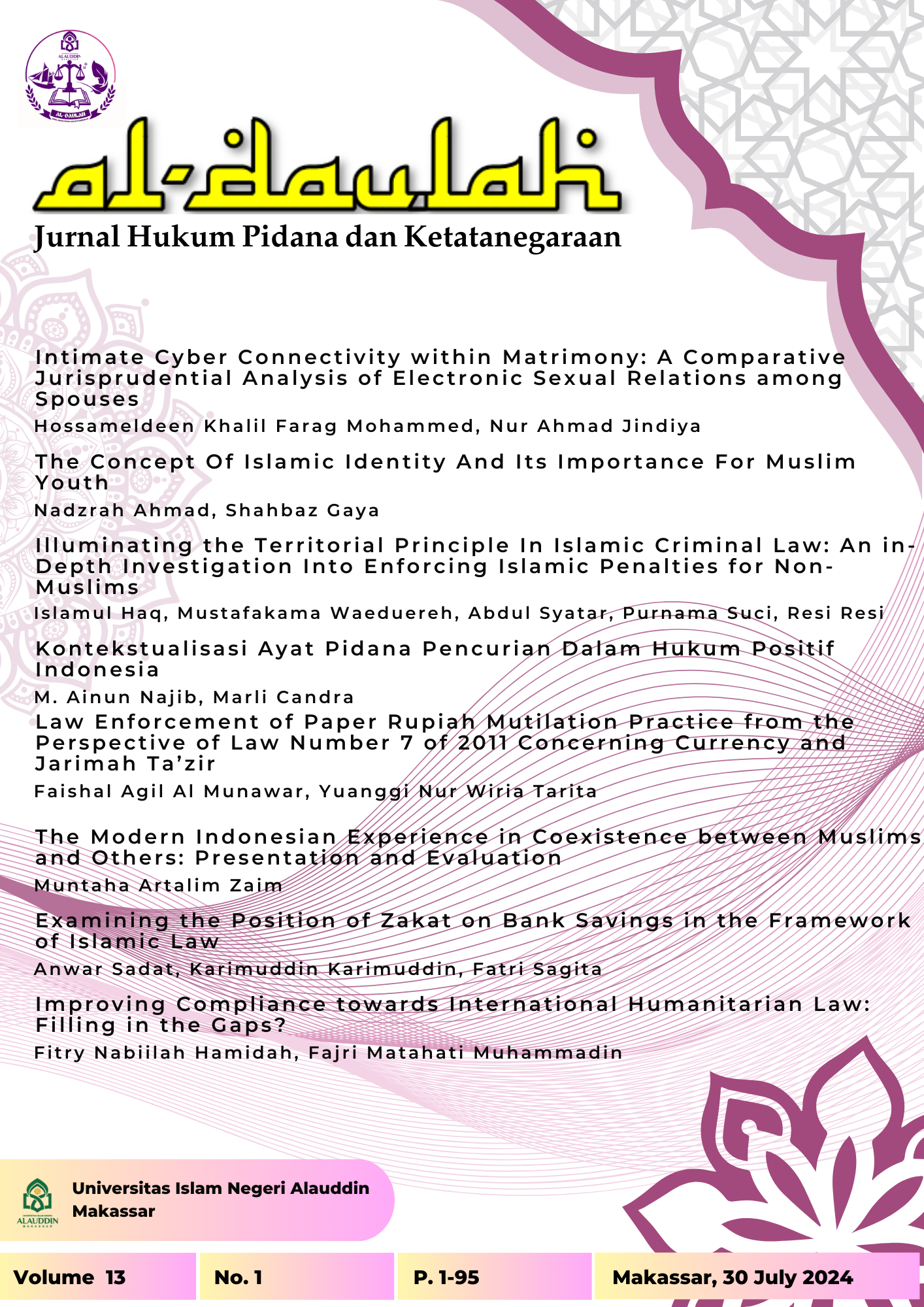Ancaman Pidana Mati Bagi Pelaku Tindak Pidana Begal Sebagai Solusi Mengurangi Tingkat Kejahatan Begal di Kota Makassar
Abstract
Criminal robber today increasingly made public Makassar City can not perform its activities properly, because it always felt threatened by street actions of the perpetrators. From the research, the crime robber in Makassar more dominant influenced by the desire to emulate after watching a scene or event through electronic media TV has indirectly serving news or violent incidents that occurred in various parts of the country water. The spectacle results become negative for the development of child education which is precisely through such education the children will try to do and practice sees. In sociology called "Society is imitation. Society is always in the process of imitating. When people are fed every day hardness values, rude, people eventually emulate. This statement is supported by data from several actors robber who were interviewed by the author. In addition, the robber occurs due to the persuasion of his friends, The criminal robber never thought a result of this action will be able to bring the perpetrators to deal with the police and cause it to go into bars.
References
Audah, Abd. Qadir. al-Tasyri'ul Jami'l al-Islamiy. juz II (Beirut: Mukassasatu al- Risalah, 1987.
BukKAhariy, Imam. Sahih Bukhari, jilid IV. Indonesia: Maktabah dahlan, t.th. Departemen Agama RI. Alquran dan Terjemahnya. Semarang: CV. Toha Putra, 1989. Hamidy, Mu'amal. Terjemahan Tafsir Ayat Ahkam asy-Syaukaniy. Surabaya: Binaa Ilmu, 1992.
Hanafi, Ahmad. Asas-asas Hukum Bidang Islam. Cet. IV; Jakarta: Bulan Bintang, 1990. Poerwadarminta, W.J.S. Kamus Besar Bahasa Indonesia. Jakarta: Balai Pustaka, 1984. Rosyada, Dede. Hukum Islam dan Pranata Sosial. Cet. I; Jakarta: PT. RajaGrafindo Persada, 1993.
Sugandhi, R. KUH Pidana dengan Penjelasannya. Surabaya: Usaha Nasional, 1980. Tirmidziy, Imam. Sunan al-Tirmidziy. Jilid III; Indonesia: Maktabah Dahlan, t.th. Widiyanti, Ninik. Perkembangan Kejahatan dan Masalahnya Ditinjau Dari Segi
Kriminologi dan Sosial. Jakarta: PT. Pradnya Paramita, 1987.
Yanggo, Chuzaimah T. Problematika Hukum Islam Kontemporer. Cet. II; Jakarta: PT. Pustaka Firdaus, 1996.
Zuhaily, Wahbah. al-Fiqh al-Islamiy Adilatuhu. Juz V (Beirut: dar al-Fikr, 1989.
A. Djazuli, Fiqh Jinayah (Upaya Penanggulangan Kejahatan dalam Islam (Cet.I, Jakarta : PT. Raja Grafindo Persada, 1997
Rahmat Hakim, Hukum Pidana Islam (Fiqh Jinayah) (Bandung : Mizan, 2000),
Dadang Hawari, Saya melihat ada Pergeseran Nilai, Sinar No. 39/Tahun II/12 34912
Hamka Haq, Islam Rahmah Untuk Bangsa (Jakarta : Pt. Wahana Semesta Intermedia, 2009
Hasbi Ash-Shiddi, Falsafah Hukum Islam . Jakarte: Bulan Bintang, 1988
Abd. Azis Dahlan, et.al., Ensiklopedia Hukum Islam. Jilid II (Jakarta: Ichtiar Baru Van Hoeve, 1996
Bambang Sunggono. Metodologi Penelitian Hukum (Jakarta: PT. Raja Grafindo Persada, 1997
The authors of a work hold the copyright and grant the Al-Daulah: Jurnal Hukum Pidana dan Ketatanegaraan the right of first publication. The work is also licensed under the Creative Commons Attribution License (CC BY 4.0), which enables others to share the work while acknowledging the authorship and initial publication in the journal. The authors can make separate contractual agreements for the non-exclusive distribution of the published version of the work, such as by posting it to an institutional repository or editing it for a book, with an acknowledgment of its initial publication in this journal. Authors are allowed and encouraged to post their work online, such as in institutional repositories or on their website, before and during the submission process. This can lead to productive exchanges and greater citation of the published work.


